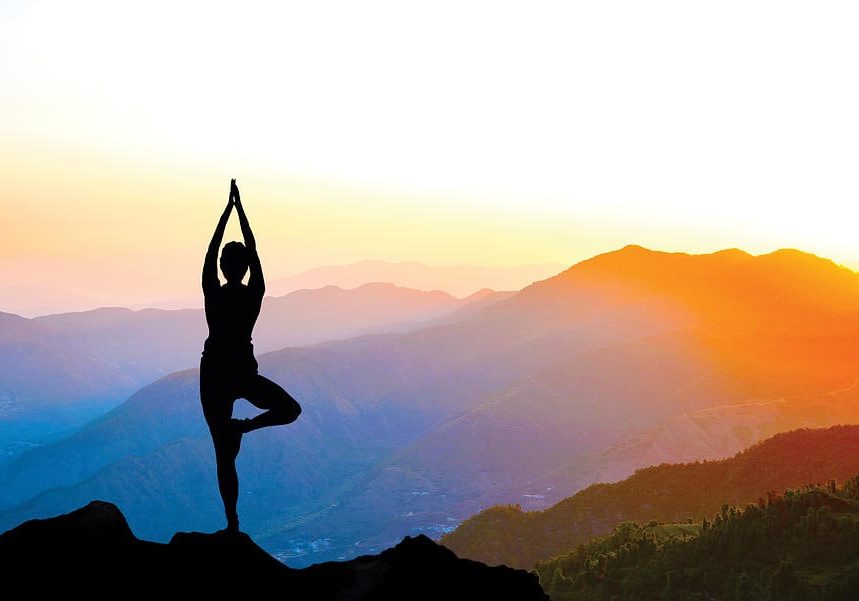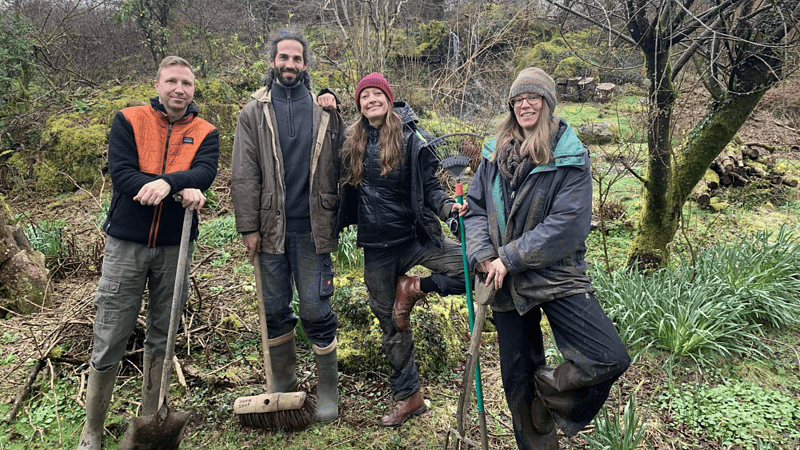
6 Things To Know Before Starting Yoga Practice
Embarking on a Transformative Yoga Journey: Preparing Mind, Body, and Spirit - By Avinash Chandran
Reading time: 6 minutes
In this busy world, finding solace and inner peace can be a Herculean task. Amidst the chaos, yoga offering an opportunity to reconnect with ourselves on a spiritual level. Yoga is not only a physical exercise, it is a philosophy, a way of life, and a holistic approach to well-being. Its benefits extend far beyond physical stretches and flexibility. Yoga has the ability to calm the mind, body, and spirit, creating a sense of balance and clarity that transcends the mat and permeates every facet of our existence.
Before diving into this practice, it is essential to know and equip ourselves with the necessary knowledge and insights that will allow us to navigate our yoga journey with confidence. Just like a sailor studies the currents before setting sail, we too must learn the basics.
1. What Is Yoga
Originating thousands of years ago in the mystical land of ancient India, yoga's roots intertwine with the very fabric of human history. It emerges as a sacred tradition, steeped in the wisdom of sages and infused with the essence of the divine.
Just as the lotus rises from the depths of muddy waters to bloom into exquisite beauty, yoga emerges as a guiding light amidst the challenges and chaos of life.
Throughout its rich and diverse history, yoga has evolved and adapted, embracing various forms and styles. From the classical yoga of Patanjali to the dynamic movements of Ashtanga, pranayama and the meditative bliss of Kundalini, each path offers a unique exploration of the mind, body, and spirit. Yet, at their core, they share a common thread - quest for self-realization.
2. Mental Preparation
As we unroll our mats and prepare to start on a transformative yoga practice, it is crucial to know that the true journey begins within.
While physical postures and breathwork play a vital role, the foundation of our practice lies in the realm of the mind. Just as a calm lake reflects the beauty of its surroundings, a tranquil mind becomes a fertile ground for the seeds of yoga to flourish.
3. Physical Preperation
It is essential to acknowledge and honor the temple that houses our spirit. Yes our physicalBody—the physical body. Just as a sculptor prepares the canvas before creating a masterpiece, physical preparation sets the stage for a transformative and safe practice.
The first step in physical preparation is to listen to our bodies with compassion and respect. Each day, our bodies present themselves in different states, influenced by factors such as energy levels, injuries, or the ebb and flow of life. By tuning in and honoring these variations, we can make conscious choices that support our well-being.
Maintaining a regular physical exercise routine outside of yoga can greatly enhance our practice. Engaging in activities that promote strength, flexibility, and cardiovascular health can provide a solid foundation for the asanas (postures) we will explore on the mat.
From walking or swimming to weightlifting or dance, finding activities that resonate with us cultivates overall fitness and prepares our bodies for the physical demands of yoga.
4. Finding the Right Yoga Class/Instructor
As we navigate the vast ocean of yoga classes and instructors, it is essential to find a guiding light that resonates with our unique journey. Just as a lighthouse guides ships safely to shore, finding the right yoga class and instructor can illuminate our path and enrich our practice.
Finding the right instructor is equally crucial, as they will serve as our guide on this transformative journey. Seek out instructors who possess not only a solid knowledge of yoga but also a genuine passion for sharing its wisdom.
Look for individuals who create a supportive and inclusive environment, where students feel safe to explore their practice and ask questions.
5. Basic Yoga Principles
One of the foundational principles of yoga is Ahimsa, the practice of non-violence and compassion. This principle extends not only to our actions towards others but also to ourselves. Cultivate self-compassion, listen to your body's needs, and avoid pushing yourself beyond your limits. Respect and honor the uniqueness of your own practice and the practices of those around you.
Another key principle is Satya, the commitment to truthfulness and authenticity. Be honest with yourself and others, and approach your practice with integrity. Avoid comparing yourself to others or seeking external validation. Embrace your journey as it unfolds, celebrating your progress and learning from each experience.
6. Avoiding Yoga Injuries
By practicing with mindfulness, awareness, and respect for our limitations, we can prevent yoga-related injuries. Listen to your body's signals, honor your boundaries, and avoid pushing beyond your capabilities.
Seek guidance from experienced teachers, modify poses as needed, and use props for support. Cultivate a foundation of strength and flexibility through regular practice, and remember that yoga is a journey of self-discovery, not a competition.
Conclusion
As we conclude our exploration of the essential considerations for a fruitful yoga practice, we are reminded of the profound potential that lies within this ancient art form. Yoga beckons us to starrt on a transformative journey—a path of self-discovery, balance, and inner peace.
By embracing mental preparation, physical readiness, finding the right class and instructor, and practicing basic principles and etiquette, we cultivate an environment where the true essence of yoga can flourish.





